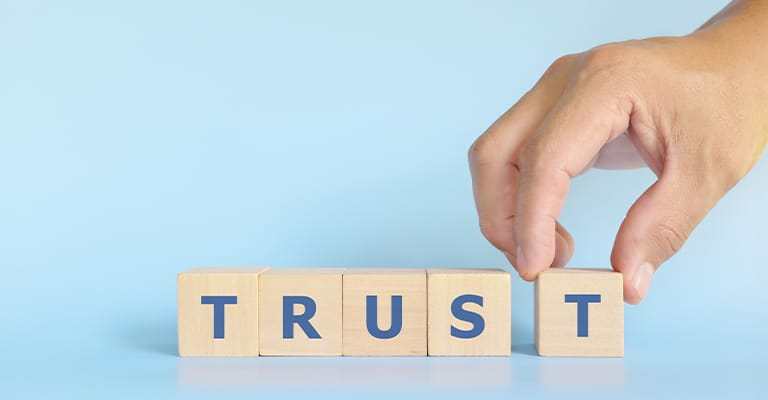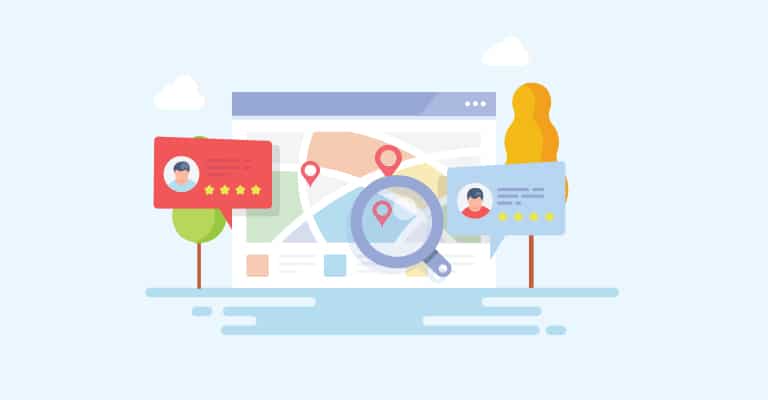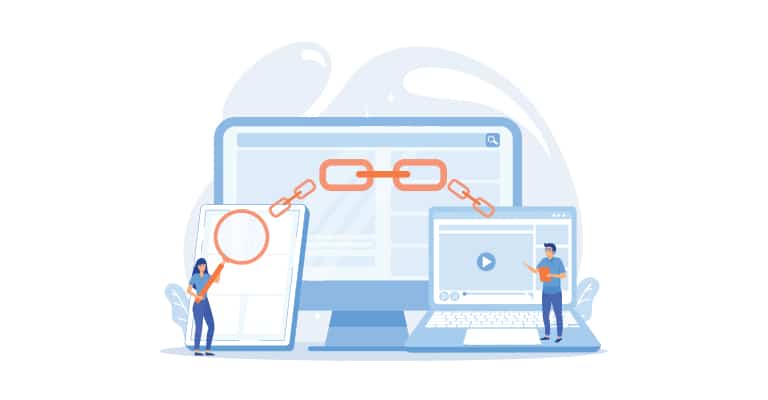You have optimized your titles, fixed your meta descriptions, and written content your competitors envy. Yet your rankings barely move. Sound familiar? The problem isn’t your on-page SEO, it’s your off-page SEO. You have been ignoring everything happening outside your website.
Most off-page SEO guides repeat the same tired advice: “build backlinks” and “use social media.” That is not a strategy. That is a wish list. This guide cuts through the noise and provides a framework that moves the needle. If your business depends on organic search, you are in the right place.
TL;DR
Off-page SEO includes everything you do outside your website to improve search rankings. At its core, you need to earn quality backlinks from authoritative sites. However, it also includes brand mentions, social signals, local citations, reviews, and E-E-A-T signals. Focus on creating link-worthy content, strategic outreach, and consistent brand building. Skip the shortcuts – they invariably backfire.
What is Off-Page SEO?
Off-page SEO refers to all the work you do outside your website to improve search engine rankings. Think of your website as a job candidate. On-page SEO is your resume, which is what you say about yourself. Off-page SEO is made up of your references. This is what others say about you when you’re not in the room.
Search engines use off-page signals to decide how trustworthy and relevant your site is. When reputable websites link to you, Google sees this as a vote of confidence. The more quality votes you earn, the higher you rank.
Why Does Off-Page SEO Matter?
Google looks at hundreds of factors when ranking websites. Research shows that backlinks remain one of the top three ranking signals. Without a strong off-page profile, even your best content struggles to compete. You need external validation to rank for competitive keywords.
Beyond rankings, off-page SEO builds brand awareness. Every mention, link, or share expands your reach. This creates a flywheel effect. More visibility leads to more links. More links lead to better rankings. Better rankings bring even more visibility.
How Does Off-Page SEO Differ from On-Page SEO?
On-page SEO covers elements you control directly on your website. These include title tags, content quality, internal links, and site structure. Off-page SEO involves external factors you can influence but cannot fully control. These include backlinks, brand mentions, reviews, and social engagement.
Both types work together. Strong on-page SEO makes your content more link-worthy. Strong off-page SEO signals to search engines that others value your content. If you neglect either one, you create a bottleneck that limits your ranking potential.
Off-Page SEO vs On-Page SEO Comparison
| Factor | On-Page SEO | Off-Page SEO |
| Location | On your website | External websites |
| Control Level | Full control | Influence only |
| Key Elements | Content, titles, meta tags, internal links | Backlinks, mentions, reviews, citations |
| Time to Impact | Days to weeks | Months to years |
| Primary Goal | Relevance and user experience | Authority and trust |
What Are Backlinks and Why Do They Matter?

Backlinks are links from other websites that point to your site. They work like digital endorsements. When a respected industry publication links to your article, it signals to Google that your content has value. This is the foundation of link building and off-page SEO.
However, not all backlinks carry the same weight. A link from a high-authority site in your industry is worth more than dozens of links from random directories. Google considers relevance, authority, and context when assessing the value each link provides.
Link Quality vs. Quantity
Quality always beats quantity when it comes to backlinks. Google evaluates three main factors: authority, relevance, and traffic. A link from a trusted site in your industry carries more weight than hundreds of low-quality directory links.
Authority refers to the linking site’s own reputation and backlink profile. Relevance means the site covers topics related to yours. Traffic indicates that real users are visiting and engaging with the content. When all three align, you get the most powerful backlinks.
Dofollow vs. Nofollow vs. Sponsored vs. UGC
Not all links pass the same signals. Dofollow links pass full PageRank and are the most valuable for SEO. Nofollow links tell search engines not to pass authority, though Google now treats them as hints rather than strict rules.
Sponsored links indicate paid placements. UGC (user-generated content) links appear in comments and forums. Both help Google understand the context of the link. A natural profile includes a mix of all types. Too many dofollow links from random sites looks suspicious.
Natural vs. Manipulative Links
Natural links come from genuine endorsements. Someone reads your content, finds it helpful, and links to it. These are what Google wants to reward. Manipulative links come from schemes designed to game the algorithm.
Examples of manipulative links include paid links, link exchanges, private blog networks, and comment spam. Google actively detects and penalizes these tactics. The short-term gains never outweigh the long-term risks of losing your rankings entirely.
Link Velocity and Growth Patterns
Link velocity refers to how fast you acquire new backlinks. Steady growth beats sudden spikes. If you go from zero links to 100 in a week, Google considers this unnatural. Organic link growth happens gradually over time.
The safest approach is consistent effort. Publish quality content regularly. Conduct ongoing outreach. Let your link profile grow naturally. This mirrors how authentic brands build authority and protect you from algorithmic penalties.
Types of Backlinks You Should Know
Editorial Links
You earn these naturally when others reference your content as a source. These are the most valuable backlinks because they come without asking. Publishers link to you because your content genuinely helps their readers.
Guest Post Links
You get these from articles you write for other publications. Guest blogging lets you share your expertise with new audiences. In return, you usually receive a link back to your site in the author bio or content.
Resource Page Links
These come from curated lists of helpful industry resources. Many websites maintain pages that list the best tools, guides, or references in their field. Getting included on these pages brings targeted traffic and authority.
Broken Link Replacements
You earn these by offering to replace dead links with your content. When you find broken links on other sites, you can reach out and suggest your content as a replacement. This helps the publisher while earning you a backlink.
Mention Links
You get these when you reach out about unlinked brand mentions. Sometimes publishers mention your brand without linking to you. A polite email requesting a link often works, since they have already found you worth mentioning.
How Do You Build Quality Backlinks?

Building quality backlinks takes a strategic approach. Random outreach to anyone with a website wastes your time and hurts your reputation. Instead, focus on creating value first. Then promote your content to the right audiences.
Digital PR and Earned Media
Digital PR means getting coverage from journalists, bloggers, and online publications. You create newsworthy content or stories that writers want to cover. This earns high-authority links from trusted media sources.
Good digital PR topics include original research, industry surveys, expert commentary on trends, and unique data visualizations. When publications cover your story, they naturally link back to your source. These editorial links carry significant weight.
HARO and Journalist Requests
HARO (Help A Reporter Out) connects journalists with expert sources. When you respond to relevant queries, you can earn backlinks from major publications. Similar platforms include Qwoted, SourceBottle, and direct Twitter journalist requests.
Success requires fast, helpful responses that demonstrate genuine expertise. Focus on queries that match your knowledge. Provide unique insights rather than generic answers. Quality responses lead to quotes and links from authoritative sites.
Partnerships and Associations
Industry partnerships create natural linking opportunities. Join professional associations that list members on their websites. Sponsor relevant events or podcasts. Partner with complementary businesses on co-branded content.
These relationships build links and strengthen your brand. Association memberships often come with directory listings. Speaking engagements lead to event page links. Partnerships create mutual promotion opportunities.
Step-by-Step Link Building Process
Create Linkable Assets
Develop content for link acquisition that others want to reference. This includes original research, comprehensive guides, and valuable tools. Your content must offer something unique that publishers cannot find elsewhere.
Identify Link Prospects
Find relevant websites that already link to similar content in your industry. Use backlink analysis tools to see who links to your competitors. These sites are likely to link to you if your content matches or beats what they already reference.
Qualify Your Prospects
Check domain authority, relevance, and traffic to prioritize your outreach targets. Not every site is worth pursuing. Focus your energy on prospects that will actually move the needle for your rankings.
Personalize Your Outreach
Write individual emails that show you know their content. Reference specific articles they have published. Explain why your content fits their audience. Generic templates get ignored.
Follow Up Strategically
Send one or two follow-ups without being pushy. Many publishers miss the first email or forget to respond. A polite reminder often gets results. However, know when to stop and move on.
Track and Improve
Watch your response rates and adjust your approach based on what works. Test different subject lines, email lengths, and value propositions. Your link-building strategy should improve over time as you learn what resonates.
Anchor Text and Link Context

Anchor text is the clickable text that contains a hyperlink. It tells search engines what the linked page is about. Getting anchor text right matters because over-optimization can trigger penalties, while too little optimization wastes ranking potential.
Types of Anchor Text
There are five types of anchor text: branded, exact-match, partial-match, generic, and naked. Branded anchors use your company name. Exact-match anchors use your target keyword exactly. Partial-match anchors include variations of your keyword. Generic anchors use phrases like “click here” or “learn more.” Naked URLs show the full web address.
A healthy anchor text profile includes all types of anchor text. Too many exact-match anchors is often viewed as manipulative. Branded and generic anchors should make up the majority of your profile. This mirrors natural linking patterns.
Contextual Placement Matters
Where a link appears on the page affects its value. Links within the main content carry more weight than those in footers, sidebars, or author bios. Google recognizes that editorial links embedded in relevant content signal genuine endorsement.
Site-wide footer links across hundreds of pages look unnatural. A single contextual link from a relevant article beats dozens of template-based links. Focus on earning links within high-quality content.
Safe Anchor Text Ratios
While there is no perfect formula, general guidelines help. Branded anchors should make up 40-60% of your profile. Naked URLs can account for 20-30%. Exact-match anchors should stay under 5% to avoid penalties.
Study your top-ranking competitors to understand what works in your industry. Their anchor text distribution provides a baseline. Stay within similar ranges as you build your links naturally.
Penguin Era Mistakes Still Hurting Sites
Google’s Penguin update targeted manipulative link building. Many sites built thousands of exact-match anchor links before the update. Those sites still suffer today because the toxic links remain in their profiles.
If your site has a history of aggressive link-building, carefully audit your backlinks. Disavow truly toxic links from spam sites. Dilute over-optimized anchors by building new links with branded and natural anchors.
Do Brand Mentions Affect Off-Page SEO?

Yes, brand mentions can help your SEO even without hyperlinks. Google can identify when people discuss your brand online. These are sometimes called implied links. Consistent positive mentions signal authority and trustworthiness.
Linked vs. Unlinked Brand Mentions
Linked mentions include a hyperlink to your site. Unlinked mentions reference your brand by name without linking. Both contribute to your overall reputation profile. Linked mentions pass direct ranking signals while unlinked mentions reinforce brand recognition.
How Mentions Reinforce Entity Authority
Google builds entity profiles for brands based on mentions across the web. When authoritative sources consistently mention your brand alongside relevant topics, Google associates you with that expertise. This helps establish topical authority.
The more Google sees your brand mentioned in trusted contexts, the more it understands who you are. This entity recognition helps with rankings, knowledge panels, and featured snippets.
Turning Mentions into Backlinks
Monitor your brand mentions using tools like Google Alerts, Mention, or Brand24. When you find unlinked mentions, reach out politely to request a link. Many publishers will say yes since they have already found your brand worth mentioning.
Keep your outreach friendly and helpful. Thank them for the mention. Explain that a link would help their readers learn more. Offer to share the article with your audience in return.
Why Recognizable Brands Rank Faster
Established brands have a head start in SEO. They already have thousands of mentions, links, and branded searches. Google trusts them more because their track record is proven. New sites must build this trust from scratch.
This means brand building is not separate from SEO. Everything you do to increase brand recognition also helps rankings. PR, advertising, social media, and community involvement all contribute to your off-page authority.
Domain Authority, Trust, and E-E-A-T Signals

Google evaluates websites based on experience, expertise, authoritativeness, and trustworthiness (E-E-A-T). While not a direct ranking factor, E-E-A-T guides how Google’s algorithms assess quality. Off-page signals play a key role in demonstrating these qualities.
Domain Level vs. Page Level Authority
Authority exists at two levels, and both matter for rankings:
- Domain authority: Reflects your entire website’s reputation and helps all pages rank more easily
- Page authority: Applies to individual pages that earn their own backlinks
- Building domain authority: Consistent link building to your best content over time
- Building page authority: Promoting individual pieces that deserve to rank for specific keywords
Trust Signals Google Evaluates
Several factors contribute to how Google assesses your trustworthiness:
- Site age: Provides a track record that newer sites lack
- Link neighborhoods: Shows who associates with you and vouches for your content
- Authoritative citations: Validates your information through trusted sources
- Consistent NAP: Name, address, and phone matching across directories proves legitimacy
- Avoiding toxic links: Links from spammy or irrelevant sites drag down your trust profile
How E-E-A-T Shows Up Off-Page
E-E-A-T signals extend beyond your website. Google’s quality raters look at what the web says about you:
- Author mentions: References to your authors on other sites demonstrate expertise
- Speaking engagements: Conference talks and podcast appearances show authority
- Media coverage: News mentions and interviews prove trustworthiness
- Industry awards: Recognition from peers validates real-world experience
- Multi-platform presence: Visibility across platforms where people search for information about you
Author Mentions and Third-Party Validation
For YMYL (your money, your life) topics, author credibility matters greatly. Build author profiles beyond your own site:
- Guest posts: Contribute articles with detailed author bios to industry publications
- Professional directories: Get listed in directories relevant to your credentials
- Academic citations: Research papers and studies that reference your work
- Industry publications: Mentions in trade magazines, journals, and news sites
- Third-party bios: Author pages on other websites that link back to your expertise
How Do Social Signals Impact Rankings?

Social signals such as likes, shares, and comments correlate with higher rankings. However, they are not confirmed direct ranking factors. Google has said that social signals do not directly change rankings. Still, social media creates indirect benefits that impact SEO.
Content Amplification
Social media increases your content’s reach. When your article goes viral on LinkedIn or Twitter, journalists, bloggers, and industry experts see it. Some of them might link to it. In this way, social success creates link-building opportunities.
Visibility Leads to Links and Rankings
The path from social to rankings follows a clear pattern. Social shares increase content visibility. Visibility puts your content in front of people who can link to it. Those links improve rankings. Better rankings drive more organic traffic.
Think of social media as the top of your link-building funnel. It exposes your content to potential linkers. The links themselves do the ranking work.
Brand Searches Driven by Social Reach
Social media exposure drives branded search queries. When people see your brand on social platforms, some will search for you on Google. Branded search volume is a trust signal. It tells Google that real people are specifically looking for your brand.
Platform Consistency
Maintain consistent branding across all social platforms. Use the same name, logo, and messaging. Complete all profile sections with accurate information. Link back to your website from every profile.
This consistency helps Google connect your social presence to your website. It reinforces your brand entity. Active, consistent profiles signal a legitimate, established business.
Local SEO and Citations

For businesses serving local customers, citations are essential off-page signals. Citations are mentions of your business name, address, and phone number on other websites. They help Google verify your business and confirm it serves a specific area.
NAP Consistency
NAP stands for name, address, and phone number. This information must be identical everywhere it appears online. Minor differences like “Street” vs “St.” can confuse search engines. Inconsistent NAP hurts your local rankings.
Audit your existing citations regularly. Fix any inconsistencies you find. Use the same format across Google Business Profile, directories, social media, and your website.
Business Directories and Citations
Submit your business to relevant directories. Start with major platforms like Google Business Profile, Yelp, and Bing Places. Then add industry-specific directories. Local business associations and chambers of commerce also provide valuable citations.
Quality matters more than quantity. A few citations from trusted, relevant directories beat dozens from low-quality sites. Focus on directories that real customers actually use.
Industry-Specific Listings
Every industry has specialized directories. Lawyers appear on Avvo and FindLaw. Doctors list on Healthgrades and Zocdoc. Restaurants need listings on TripAdvisor and OpenTable. These niche directories carry extra weight for local SEO.
Research which directories matter in your industry. Claim and optimize your profiles. Keep information current. These listings often appear in search results alongside your website.
Reviews and Online Reputation

Reviews are powerful off-page trust signals. They influence click-through rates, local pack visibility, and brand authority. Google uses reviews to understand customer sentiment and business quality. Managing your review profile is essential for off-page SEO.
How Reviews Impact Rankings
Reviews affect multiple ranking factors. Star ratings influence click-through rates from search results. Higher click-through rates signal relevance. Reviews containing keywords add semantic context. Review quantity and recency to show business activity.
For local businesses, reviews directly impact local pack rankings. Google weighs review quantity, quality, and velocity when deciding which businesses to show in the top three local results.
Key Review Platforms
Google reviews matter most for local SEO. They appear directly in search results and maps. Yelp remains essential for restaurants and service businesses—industry-specific platforms such as TripAdvisor, Healthgrades, and G2 matter within their respective niches.
Focus your review efforts on platforms where your customers naturally look. Encourage reviews on Google first. Then prioritize the one or two other platforms most relevant to your industry.
Review Velocity and Authenticity
Steady review growth looks more natural than sudden spikes. Getting ten reviews in one day after months of silence raises red flags. Aim for consistent, ongoing review acquisition through normal business operations.
Never buy fake reviews; platforms can detect them and remove them. Google may penalize businesses caught using fake reviews. Authentic reviews from real customers are the only safe approach.
Responding to Reviews Correctly
Respond to all reviews, both positive and negative. Thank customers for positive feedback. Address negative reviews professionally and offer to resolve issues. Your responses show potential customers that you care about service.
Never argue with reviewers publicly. Take heated discussions offline. Acknowledge legitimate concerns. Your response is really for future customers reading the reviews, not just the original reviewer.
Competitor Backlink Analysis

Studying your competitors’ backlinks reveals proven opportunities. They have already done the work of finding sites in your industry that are willing to link to you. Learning from their successes (and failures) accelerates your own link-building efforts.
Link Gap Analysis
A link gap analysis identifies sites that link to competitors but not to you. These represent your most attainable opportunities. The sites have already shown interest in linking to your space. You just need to give them a reason to link to you.
Use tools like Ahrefs, Moz, or SEMrush to compare backlink profiles. Export the gaps. Prioritize sites with high authority and relevance. Then create content or outreach strategies to earn those links.
Identifying Replicable Links
Some competitor links are easy to replicate. Directory listings, association memberships, and resource pages often accept multiple businesses. If a competitor earned a link through a guest post, you can pitch the same site.
Other links are harder to copy. Exclusive partnerships, custom research mentions, or earned media coverage require more effort. It’s best to categorize opportunities by difficulty and prioritize accordingly.
Prioritizing High-ROI Opportunities
Not all link opportunities deserve equal effort. Focus on sites that combine high authority, strong relevance, and reasonable difficulty. A moderately authoritative site that readily accepts guest posts may offer better ROI than chasing impossible targets.
Create a scoring system for prospects based on variables such as weight authority, relevance, traffic, and acquisition difficulty. Work down your prioritized list systematically rather than chasing random opportunities.
Avoiding Toxic Link Neighborhoods
Competitor analysis also reveals what to avoid. If competitors have links from spammy directories or link networks, do not replicate those. Some sites that linked to your content years ago may now be toxic. Avoid any site that appears to be a link farm or contains obviously manipulative content.
Check the linking site’s quality before pursuing. Review their content, the sites they link to, and their own backlink profile. Association with bad link neighborhoods can hurt your site’s trust signals.
Measuring Off-Page SEO Performance

Tracking the right metrics helps you understand what is working. Off-page SEO takes time to show results. Monitoring progress keeps you motivated and helps identify needed adjustments. Focus on metrics that connect link building to business outcomes.
Referring Domains
Track the number of unique domains linking to your site. More referring domains generally correlate with higher rankings. Watch for steady growth over time. Sudden drops may indicate lost links that need recovery.
Link Quality Trends
Monitor the authority of sites linking to you. Are you earning links from increasingly authoritative sources? Track the average domain rating of new links over time. Quality improvements matter more than raw quantity increases.
Branded Search Growth
Watch branded search queries in Google Search Console. As your off-page presence grows, more people should search for your brand specifically. Rising branded searches indicate growing brand awareness and trust.
Rankings Correlated to Link Acquisition
Track ranking changes for target keywords alongside link-building activity. Do rankings improve after earning strong links? This correlation helps prove the value of your off-page efforts and guides strategy adjustments.
Traffic from Earned Placements
Good links drive direct referral traffic. Monitor traffic from sites that link to you. Quality backlinks should send relevant visitors who engage with your content. Traffic without engagement suggests the link may not be as valuable as it appeared.
What Tools Help with Off-Page SEO?

The right tools make off-page SEO easier to manage and measure. Here are the categories you should know about, along with the top tools for each.
Backlink Analysis Tools
These tools help you track your backlink profile and research your competitors’ activities.
- Ahrefs: Industry-leading backlink database with detailed metrics on referring domains, anchor text, and link growth over time
- Moz: Provides Domain Authority scores and link tracking with an easy-to-use interface for beginners
- SEMrush: All-in-one SEO suite that combines backlink analysis with keyword research and site audits
Brand Monitoring Tools
These tools track when people mention your brand across the web so you can find linking opportunities.
- Google Alerts: Free tool that emails you when new content mentions your keywords or brand name
- Mention: Real-time monitoring across web, social media, forums, and news with sentiment analysis
- Brand24: Tracks mentions across 25 million online sources with influencer scoring and reach metrics
Outreach Management Tools
These tools help you find contact information and manage your outreach campaigns at scale.
- Hunter.io: Finds and verifies professional email addresses associated with any domain
- Pitchbox: End-to-end outreach platform with prospecting, personalization, and automated follow-ups
- BuzzStream: CRM for link building that tracks relationships, emails, and campaign performance
Competitor Research Tools
These tools let you study your competitors’ link-building strategies so you can find proven opportunities.
- SpyFu: Reveals competitor keywords, ad spend, and backlink sources going back over a decade
- SimilarWeb: Shows competitor traffic sources, referral sites, and audience overlap data
Content Discovery Tools
These tools help you identify trending topics and content ideas likely to attract links.
- BuzzSumo: Identifies most-shared content by topic and shows which sites link to top-performing pieces
- Exploding Topics: Spots emerging trends before they peak so you can create content ahead of competitors
How Long Does Off-Page SEO Take to Work?

Off-page SEO is a long-term investment. You should expect to wait 3 to 6 months before seeing real ranking improvements from your link-building efforts. New websites often take longer. Sometimes you need 12 months or more to build enough authority.
Several factors affect your timeline. These include your starting authority, competition level, link-building speed, and content quality. Consistent effort adds up over time. Websites that build links steadily beat those that run random campaigns.
Frequently Asked Questions
What is off-page SEO?
Off-page SEO covers all the work you do outside your website to improve search rankings. This includes building backlinks, earning brand mentions, managing reviews, building citations, and growing social proof. These signals help search engines judge your trustworthiness and authority.
Why are backlinks important for SEO?
Backlinks act as votes of confidence from other websites. When authoritative sites link to your content, search engines see this as proof that your content provides value. Quality backlinks remain one of the top three ranking factors in Google’s algorithm.
How do you build backlinks?
You build backlinks by creating content worth linking to. This includes original research, comprehensive guides, and valuable tools. Then you promote this content through targeted outreach, digital PR, guest blogging, and HARO responses. Partnerships and associations also provide opportunities for linking.
What is the difference between on-page and off-page SEO?
On-page SEO refers to changes you make directly on your website. These include content, meta tags, and internal links. Off-page SEO encompasses external factors such as backlinks, brand mentions, reviews, and social signals. You need both for complete search optimization.
How much does off-page SEO cost?
Costs vary widely based on your approach. DIY link building takes time but little money, while hiring an agency can cost anywhere from $1,000 to $10,000 per month, depending on how competitive your industry is. Quality matters more than quantity. Avoid cheap link schemes that can trigger penalties.
Is buying backlinks safe?
No. Buying links breaks Google’s guidelines. You risk severe penalties, including ranking drops or complete removal from search results. Google has advanced systems to detect paid links. The risk is much greater than any short-term gains.
How many backlinks do you need to rank?
There is no magic number. What matters is your link quality compared to your competitors. Look at the backlink profiles of pages currently ranking for your target keywords. You will need similar authority from relevant sources to compete with them.
Do nofollow links help SEO?
Nofollow links do not pass PageRank directly. However, they still provide value. They send referral traffic, increase brand visibility, and make your link profile look natural. Google now treats nofollow as a hint rather than a strict rule.
Common Off-Page SEO Mistakes to Avoid
Prioritizing Quantity Over Quality
Chasing link numbers instead of relevance will destroy your backlink profile. One hundred low-quality directory links will not outrank five editorial links from respected industry publications. Focus your energy on earning backlinks from authoritative, relevant sites.
Ignoring Anchor Text Diversity
Using the same anchor text too often triggers penalties. If every backlink uses your exact target keyword, Google may view it as manipulation. Mix branded anchors, naked URLs, and generic phrases. Keep your link profile looking natural.
Neglecting Link Velocity
Sudden spikes in backlinks look suspicious to search engines. If you go from zero links to fifty in one week, that raises red flags. Build links at a steady pace that matches organic growth. Slow and steady wins this race.
Skipping Competitor Analysis
Understanding your competitors’ backlink profiles shows you proven opportunities. Find out which sites link to your competitors and why. Those same publishers might link to you if you offer similar or better content. Research what already works.
Forgetting About Link Maintenance
Links break over time as sites change or shut down. Losing valuable backlinks hurts your authority. Check your backlink profile every month. Reach out to fix broken links or reclaim lost ones before the damage adds up.
Using Generic Outreach Templates
Mass emails get ignored or marked as spam. Publishers receive dozens of link requests every day. Make your pitch stand out by referencing specific articles on their site. Show that you actually visited their site before reaching out.
Final Thoughts
Off-page SEO is not a quick fix. It is the long game that separates websites with lasting traffic from those always chasing algorithm updates. The businesses that commit to building genuine authority are the ones that win. This means creating valuable content, building strategic relationships, and staying consistent.
Start with one strategy. Perhaps you conduct original research. Maybe you write guest posts for three industry publications. Whatever you choose, do it well before adding more tactics. Depth beats breadth in link building. Your next step is to run an off-page SEO audit on your current backlink profile. Find your strongest links and figure out why they happened. Then repeat that success. The best off-page SEO strategy is the one built on what already works for you.




